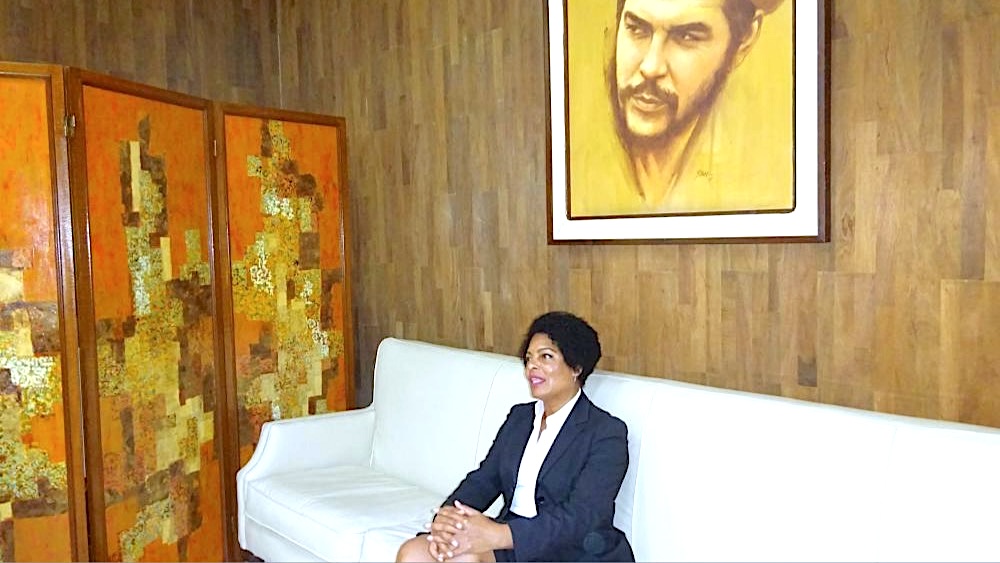'Apart from bankrupting people and emptying refrigerators, the currency chaos that ravaged the island a few days ago made one thing very clear: Castroism has even less money than shame' The Government, like a dazed boxer, could only look on helplessly as its currency was pounded, without the strength to even try to steady a market that had spun out of control.
For years they have been announcing an impending reordering of the exchange market, but it never materializes, and not because they do not want to, because ordering, controlling and regulating are hallmarks of totalitarianism. Nor is it the case that it is not necessary to structure the market, as in economies like Cuba's, highly exposed to international trade, a financial mechanism (usually a central bank injecting or withdrawing currency from circulation) is essential to mitigate peaks in exchange rates in order to avert unwanted economic consequences.
It turns out that Castroism does not have the resources to do what it would like to, nor the courage to do what it should.
What it would like to do (but it lacks the dollars to) is return to those halcyon days when the CADECA monopolized the foreign exchange market thanks to the fact that, in complicity with Western Union, GAESA plundered remittance dollars, forcing Cubans to use tokens called CUC, with which the Government plundered the people by subjecting them to a 240% surcharge.
What it should do is legalize private agents in the financial business, Cuban and international, just as it has lifted the ban on other activities in order to institutionalize a market, foreign exchange, which today is adrift and is essential for the functioning of an economy that is sustained more by what happens outside the country than by what is done inside it.
Castroism, however, is unable overcome its fear, its panic, about a private bank in Cuba. They know that those who start out today as money changers will soon evolve into lenders, and, from there, into investors, thus creating a parallel mechanism for attracting and outlaying resources that would upstage the state investment's poor performance. And Castroism does not want to be shown up; it would rather see people suffer than be humiliated.
Legalizing those who today are engaged in the purchase and sale of currencies would make it possible, if not to control the exchange rate, at least to reflect currencies' real value with respect to the peso, a very important service that El Toque provides today, with the inevitable limitation of sampling only announced supply and demand, a method necessary, for now, because they are illegal transactions, but ones that yield different values than those would be indicated if actual purchases and sales could be sampled on an official market.
The fact that the true values of currencies in Cuba today are unknown, such that they are appraised illegally, and that the State is unable to curb speculative peaks, is a huge barrier to foreign investment given the economic calculation problems generated by the unpredictability of the exchange rate, added to the risks of investing in a broken country whose owners can pay you on time, or not... where they can take that money to fix thermoelectric plants, and decide to pay whenever they deem fit, and in a currency that was invented the day before yesterday, claim that it is worth 24 to a dollar.
The current fixed exchange rate dictated by the Central Bank, apart from being totally disconnected from economic reality, in practice constitutes a capital control mechanism that scares off the few delusional people who, at some point, in some psychotic crisis, might think about investing in socialist Cuba.
The instability of the currency, the natural opacity of the illegal exchange market, and the irrelevance of the official one, plus an obtuse effort to maintain a fixed exchange rate —a financial throwback practically eradicated from the face of the Earth— are stumbling blocks for Cuba to be an attractive place in which to investment, given its resources, its good and scandalously cheap labor, and its geographical position.
Thus, the cost of Castroism not regularizing this situation by doing what it should is tremendous for Cubans, trapped in a land excluded from the map of international investment. "The most social government in the world," once again behaves like the most unscrupulous, putting the interests of the mafia that controls it before the needs of 11 million evicted souls, who tremble every time they hear that the dollar is rising again.
